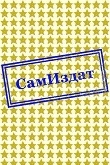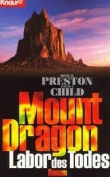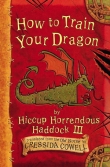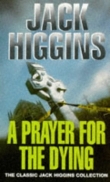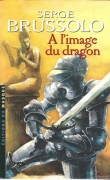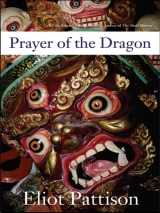
Текст книги "Prayer of the Dragon"
Автор книги: Eliot Pattison
Жанр:
Полицейские детективы
сообщить о нарушении
Текущая страница: 7 (всего у книги 24 страниц)
Chapter Four
Shan was nearly in sight of Drango village the next morning when he heard an angry shout. He flattened against an outcropping, wondering if, against all odds, Kohler had had him followed by a squad of soldiers. He bore the bruises of a night passage through the ravine, having crossed the flimsy ladder bridge just before the moon hid behind clouds and then spent a restless few hours in a hole in the jumbled rocks, certain every tumbling stone was the sound of pursuing boots.
A string of curses in Mandarin erupted from the far side of the outcropping. He studied the trail behind him, then cautiously stepped around the rock, freezing momentarily before his foot came down on a freshly erected cairn. Eight inches high, it had been carefully constructed inside one of the pans used by miners for working streams, a sprig of fresh heather inserted in its center. It still smelled. It had been made of manure dropped from a mule or horse, and carefully placed in the middle of the trail above Drango. Peering around the rock Shan saw a middle-aged Chinese man berating a mule stacked high with cargo, trying to coerce it to turn down a fork in the trail. He grabbed a handful of the sweetgrass that grew in the cracks in the rocks at his feet and stepped around the far end of the outcropping. The animal’s head snapped up and the mule leaned toward the grass in Shan’s hand.
“It’s mybeast,” the man growled. He raised his makeshift staff, a crooked but sturdy juniper limb, as if to hit Shan.
“But it’s Tibetan,” Shan said. “Tibetans have a custom of sharing part of the load when they travel.”
A pick and shovel were lashed to the top of the mule’s panniers. The man’s hand went to a knife in his belt. His grin was aimed past Shan’s shoulder. The hairs on the back of Shan’s neck rose as he slowly turned. A large dog sat on a slab of rock six feet away, fangs bared, ready to pounce.
“No bark,” the miner declared, showing his own yellowed teeth. “All bite.”
Shan let the mule eat the grass, then kneeled, facing the dog. “Why do you leave the mountain halfway through the season?” he asked the miner, who did not reply.
Shan spoke to the dog in Tibetan, as Lokesh did when meeting an unfamiliar animal, asking it how it felt, praising its obvious strength. A belief in reincarnation made for interesting relationships with animals. The dog’s fangs disappeared. It cocked its head and stepped forward, tentatively licking Shan’s hand.
“You’re no miner,” the stranger said. “And you’re not one of those damned farmers either.”
Shan pulled up his sleeve and displayed his tattoo. After so many years he had learned that though for many it was a cause for alarm, for others it was an icebreaker.
The tautness left the man’s face. He studied Shan, then extracted a small gleaming nugget from a pouch at his belt. “This is yours if you help me down the mountain to the road. Three days’ work. I’ve twisted my ankle.”
“I can’t,” Shan replied. “But I can wrap your ankle if you have some cloth so it will be easier for you to walk on it.”
“Under the shovel,” the miner said. “There’s an old piece of canvas.”
Shan did not miss the worried glance the man cast up the trail. Was he being followed? “Sit and unlace the boot,” Shan advised as he pointed to a nearby rock, then he retrieved the cloth. In five minutes he was expertly wrapping the swollen ankle. When he finished the man uttered a satisfied grunt and extracted a much smaller piece of gold.
Shan raised his palm to decline payment. “Just tell me what has frightened you.”
“I don’t fear a damned thing. It’s the way of things this summer. My old grandmother knew, after all the famines and wars she saw. Sometimes death stalks a land, she said, and there’s nothing man can do to stop it. If you aren’t smart enough to come in out of a hailstorm, don’t complain when your skull gets cracked. They closed my factory. Everyone says move to a big city to make money. I don’t want a big city.” The miner shrugged, watched a passing cloud for a moment. “I’ve got family I want to see again.”
The man lit a cigarette. “Two years ago an old friend from the army shows up. He asks me to hide him from the police for a few days while he waits for a ride to Hong Kong. In return he tells me the biggest secret in Tibet. After the snow melts, he says, load up a mule with supplies and follow this secret map to a place called Sleeping Dragon Mountain. Pick up gold from the ground and it’s yours. Last year I came, and it was good. I got enough to pay off my debts. This year started the same but then it got ugly. My camp was looted, half the gear stolen. A miner not far from me woke up in the night to find all the trees in his camp on fire. Another miner’s mule was killed by a painted stick stuffed down its throat.”
Shan looked up with sudden interest.
“Two weeks ago someone killed my other dog and stuffed a claim stick in its mouth.” The miner blew a plume of smoke toward the sky.
“Why? What do they want?”
“No one ever sees who does it. When it happens to you, you move your claim and they leave you alone.”
“Then they take over the claim?”
“No one takes it.”
Shan considered the reply a moment. “It’s as if you were just getting too close to something they don’t want you to see.”
“That’s what I thought. But they’ve all been in different places. Once up against the wall that divides the mountain. Once in a small grove of trees by an old painted rock. Once at the edge of a cliff. There’s enough gold, enough room, so it’s not worth it to try to oppose whoever is doing it.”
“But then those two men died.”
The man inhaled deeply on his cigarette, studying Shan. “A day after the murders I was on a high trail, walking along the top of a slope almost as steep as a cliff, when I saw two men above me, maybe three hundred yards higher up. I ducked into the shadows and didn’t think they noticed me. They were carrying heavy loads wrapped in cloth, on shoulder poles. One of them dropped something that rolled down the trail toward me. Round as a ball, in a burlap sack. It rolled almost to me before it fell off the trail and bounced into the gully far below. Some use twine to mark out their claims. I figured it was a ball of twine until it fell out of its sack. . ”
“But it wasn’t twine,” Shan said as he gently eased the man’s foot back into his boot, lacing it loosely. He lifted the man’s staff and began working on it with his pocketknife.
“It wasn’t anything I ever want to see again. It had been pounded by the rocks, as if someone had played soccer with it. I looked up and one of the men was studying me with binoculars. I leaped up and ran down the slope like some damned fool. That’s when I twisted my foot.”
“The head in the bag,” Shan said. “Young or old?”
“It’s not like I had time to study it. But I saw some gray hair.”
So two men had been involved in the killings, and they had cut the bodies up to dispose of them. “Where would you go, if you had something like that to get rid of?”
“Right about where they were. There’s a crack in the cliff that goes down deeper than anyone can see.”
“The cliff where a miner was chased away from his claim?”
The man thought for a moment. “Now that you mention it, yes, it was the same place.”
“Did you recognize the men?”
“They were too far away. But they had binoculars. They saw me.”
Shan kept whittling on the staff. “Were you here last year when a man was killed?”
“That’s over and done with.”
“What do you mean?”
“The son of a bitch was a claim jumper. We found claim sticks taken from four of us at his camp. No one was sorry to see him disappear. But it spooked us.”
“You mean because of the way he died?”
“Because he was found in front of one of those paintings of demons, the one of the blue bull, and there was fresh blood on the painting, as if the demon had come to life. Because his hands were cut off. But that’s ancient history. Captain Bing proved who the killer was and chased him off.”
It was Shan’s turn to look up the trail in alarm. “Captain? You mean the army was involved?”
The miner offered a sour grin. “Call it the miners’ militia. Bing discovered that the man’s own partner had killed the claim-jumping bastard. Later, the dead man took care of things.”
“The dead man?”
“We buried him in a shallow grave under a mound of heavy rocks. Two weeks later a skeleton appeared, draped over the grave. Some said the dead man rose up from the grave, that he was too angry to stay buried before obtaining vengeance. But then we saw the skeleton’s fingers.”
“The fingers?”
“One of them held his partner’s ring,” the man said with a shudder. “The skeleton was that of the dead man’s partner, who’d killed him. I saw it with my own eyes. The dead man did rise up and take revenge. No one goes near there anymore. We know better than to interfere with the business of the dead.”
“Where exactly is this no-man’s-land?”
“The grave is on a long black ridge that juts out to the west. About a mile north of Little Moscow.” The man saw the confusion on Shan’s face. “And if you don’t know about that already, you don’t want to know. They don’t take to strangers. Captain Bing organized things last year after those killings.”
Little Moscow. Captain Bing. The lonely mountain was becoming more crowded all the time.
“Don’t mess with Bing. He’ll chew you up and spit out your bones.”
“So at least one man was killed last year. And two men were murdered last week. Was there anyone else?”
“Why do you care?”
“I collect stories about the dead. Something I started in prison.”
The miner contemplated the point for a moment, glanced at his expertly bound ankle, and nodded. “A young miner, a newcomer barely out of his teens, was killed in front of a painting of a blue bull demon. The body disappeared so fast no one knows for certain what happened. Only one other miner saw it before it was carried away. Ugly business. He said at first he thought the boy was just lying down, smoking a cigar.”
“A cigar?”
“But when he came close he saw it was a small stick, jammed into the boy’s dead mouth. Not a claim stick. It had eyes carved into it. It scared everyone, because of all the other things that happen on this mountain.”
“You mean the skeletons.”
“Skeletons. Ghosts. Those damned paintings. People say this is where all the old demons come, to hide from the rest of the world, that the demons in the paintings come to life at night.”
Shan handed the man the staff he had been working on. He had cut off some of the stubs protruding from the juniper limb and turned the top joint into a smooth, curving cradle. The staff had become a crutch.
The man accepted it with an approving nod, then rummaged among the packs on the mule. “If you don’t take something it’ll jinx me.” He extracted a small blue nylon pouch tied with a drawstring, hesitated, then tossed it to Shan. “Take it. Not my kind of trinkets.” He avoided Shan’s gaze now, tending to his packs, talking soothingly to his animals. He seemed grateful to be rid of the little blue sack.
“After this fork in the trail,” Shan said, “the quickest way down is straight, past Drango. It is why your mule stopped here. It knows the way.”
“Not today,” the man said, with a wary glance in the direction of the village. “If you see that prick Chodron, give him a message,” the miner said as he rose. “Tell him I left his payment on the trail.” He hobbled away, using more of the grass to coax his mule onto the side trail.
Shan waited until the man was fifty yards away before sitting and emptying the sack onto the ground. In it was a small plastic thermometer with a ring by which it could be attached to a lanyard and a small stack of papers bound with a rubber band. Each was covered with little round discs with adhesive backing, in half a dozen colors. A small pencil sharpener. Three identical screwtop brown plastic containers. The first contained matches, the second a variety of medicinal tablets, and the third was apparently empty.
He laid his discoveries on a rock, studying them, trying to understand what he saw. At last he picked up the thermometer and read it. The degrees were marked in Fahrenheit, only in Fahrenheit. It had belonged to someone from America.
Nothing appeared to have changed when he entered the village. But when the guard at the stable door hesitantly lifted the bar for Shan something seemed to be blocking the door from the inside. “One moment,” he heard Lokesh say, and seconds later the door opened and his old friend motioned him inside. The stranger lay flat. Gendun, at his head, looked frail. The lama’s arm trembled where the electrodes had been attached. But Gendun was steadily murmuring his prayers. Dolma, nearby, worked a small wooden churn.
At the sound of the bar dropping into place Dolma stopped and Lokesh bent to a cluster of butter lamps he was using to heat a tin kettle. Dolma extended a hand and the stranger grasped it, pulling himself up as he fixed Shan with bright, intelligent eyes.
“Tashi delay,”Shan ventured, offering the traditional greeting.
“He doesn’t understand us,” Lokesh said. “He speaks one of the ancient tongues.”
“Ni hao,”Shan tried, switching to Chinese.
“Ya’atay,”the stranger said. It was neither Tibetan nor Chinese, nor any language Shan knew.
“I am called Shan,” he continued in Chinese, pointing to himself.
“Ni. . hao,” the stranger offered in a slow, uncertain voice, then switched to his strange tongue. “Hostene,” he said, pushing a thumb toward his chin. Dolma busied herself at the little churn and soon handed the stranger a cup of buttered tea, which he eagerly raised to his lips and tilted down his throat. A moment later he gagged, coughed, and set the cup down, holding his belly. This Tibetan who spoke the ancient Tibetan tongue was not familiar with the traditional Tibetan drink.
Shan studied the bench where Dolma had churned the tea, then chipped off a corner of the brick of black tea she had used, dropped it into another cup, and filled it from the kettle without adding butter or salt. He extended the cup to the man, who hesitantly accepted it, sniffed the contents, and tested it with a cautious sip.
“A’hayhee,”the man said. The gratitude in his tone needed no translation. He drained the cup, then became aware of Gendun’s eyes fixed on him. The lama, Shan saw, was seized with intense curiosity, a mix of confusion and fascination. The stranger awkwardly pressed his palms together, fingers extended, the traditional offering of respect.
Gendun cocked his head first to one side then the other. “If the gods are trying to take us to a new place,” he said in a quizzical, excited tone, “why would they use our old words?”
Shan watched in mute confusion as the lama reached inside his sleeve and produced the stub of a pencil. On one of the smooth planks leaning against the wall he drew something, then set it in front of the stranger. Surprisingly, it was a fish. Not any fish, but the traditional image of the leaping golden fish, representing spiritual liberation, one of the Eight Auspicious Signs sacred to the Tibetans.
The stranger rubbed his head a moment, gazing uncertainly at his companions, then accepted the pencil offered by Gendun and ran his fingertip over the image in the same way Lokesh did with unfamiliar images. The silence was that of a teaching, when novices waited for the slow word of an old lama. At last he lifted the pencil and drew an object opposite the fish on the plank, something that might have been a stalk of corn.
Gendun ran his own fingertips over the new image, then drew another of the sacred symbols. A lotus flower, sign of purity. The stranger made another. A bundle of arrows.
A sigh of wonder escaped Lokesh’s lips. Gendun sketched still another of the eight sacred signs. A treasure vase, repository of the jewels of enlightenment. The stranger sketched. A rainbow. Gendun drew again. A wheel of dharma. With a somber gaze the stranger once more bent over the plank. When he had finished Shan saw Lokesh’s eyes grow round. The man had drawn the zigzag snake, the thunderbolt serpent that they had seen drawn in blood. “The gods are making a proposal,” the old Tibetan exclaimed, then his face sagged. “But I don’t know what it is.”
As his friends bent over the sketch, Shan stepped to a corner, where sunlight leaked through cracks in the plank wall. He pulled from his belt the pouch given him by the fleeing miner, kneeled, and extracted the brown plastic jars, realizing he had not opened the one he had assumed to be empty. He had been wrong. It was filled with small colorful feathers. He unscrewed the container with the medicine. It contained two types of pills, neither of them the small white tablets strangers often brought to Tibet for altitude sickness. He discovered a slip of paper tucked so tightly around the inside of the jar that he had not noticed it on his first examination. With a finger he pried at it, discovering there were in fact two slips, both drug prescriptions. One was for methotrexate, the other for leucov-orin calcium. Along the top of each slip ran a legend in ornate silver letters. Monument Pharmacy, Shiprock, New Mexico.
For several minutes Shan continued to watch the silent, energetic exchange between his two Tibetan friends and the stranger, his mind racing. The riddles of Sleeping Dragon Mountain never generated answers, only more riddles. Finally he poured another cup of black tea and squatted by the trio.
Shan said in English as he extended the cup to the man, “I hear there are more Tibetan scholars in America than in China.”
At the sound of the English words the stranger’s jaw dropped. His reply came out in a dry and cracked voice, but it was understandable. “I have never met a Tibetan who spoke English.”
“I am Chinese,” Shan said, returning the man’s grin.
“I am called Hostene, Hostene Natay.” The man looked about, studying each of them in turn. “I guess you saved my life.”
“Lha gyal lo,” Lokesh whispered, the words echoed by Dolma a moment later. Gendun, his hand pressed to his side as if he was in pain, offered a serene smile, then gazed at the plank with the drawings.
They spoke rapidly for a quarter hour, Shan pausing to translate for his friends until Hostene discovered both Gendun and Lokesh spoke Chinese. In slow, clumsy Mandarin, with many apologies for not having kept it polished since learning it in the US Army many years earlier, he explained that he was a retired judge from New Mexico in the southwestern United States. Lokesh gave Shan no chance to ask Hostene about the murders, instead peppering him with questions about the stick figure, the lightning bolts, and the dialogue in symbols he had carried on with Gendun.
“It is why we are here,” Hostene explained. “To unlock the links between the Tibetans and my people.”
“Your people?” Shan asked.
“The Dine. The Navajo.”
Shan had a vague recollection of the term. “You mean Native Americans?”
“There are many names for the tribes that first inhabited North America. First Nations. Original Peoples.” Hostene pressed his hand to his temple. “The people to whom the gods entrusted the continent.” His wry tone did little to conceal his obvious pain. “My tribe is the Navajo.”
He closed his eyes a moment. “I don’t remember how I got here. I was sleeping. Someone walked through the trees and stepped on a branch. I rolled over and something hit me on the head.”
Shan asked, dreading the answer, “Who else was with you?”
“A retired professor from Beijing, Professor Ma Hopeng, and a young Tibetan guide. We met in Chamdo.” Hostene paused, looking toward the door with anxious eyes. “Where are they?” he asked urgently. “I must see them.”
Shan and Lokesh exchanged a glance.
Hostene struggled to rise, then slumped forward. He seemed to be losing consciousness again. “The boy is covered in blood!” he groaned. “Warn her, up on the mountain!” His eyelids fluttered and shut, and he dropped back onto the pallet.
“The mountain deity,” Lokesh concluded. “He wants to warn the mountain deity.”
As they rolled him onto his back, Hostene came to life again, resisting their efforts, trying to get to his feet. He was perhaps fifteen years older than Shan but, at least for the moment, seemed to have the strength of a man in his prime.
“They are beyond our help,” Shan told him. “There are words you might wish to say for them. Gendun has been offering prayers for them.”
Hostene looked at Shan, seeking comprehension. Shan caught him as he sagged and lowered him back to the pallet.
“Something happened that night,” Shan said. “You were found covered with blood, sitting against a rock. You are the only survivor.”
Hostene lowered his head into his hands. No one spoke. Dolma lit another stick of incense.
“I was in my sleeping bag,” the Navajo finally whispered. “The sun had not yet risen. I turned and. . that’s all I can recall. Who?” he asked. “Why?”
“We don’t know,” Shan admitted.
“The police?”
“No government reaches here.”
Time passed. “She said she was going to close the circle between two peoples,” Hostene finally said in a grief-stricken voice. “She was so excited about her discoveries. So full of life. I used to say she was like one of the wild mustangs we sometimes glimpsed in the arroyos.”
Shan could not make sense of the Navajo’s words.
When Hostene looked up, tears were streaming down his cheeks. “What will I tell my sister when I see her in the night?”
“Your sister?”
“Abigail was my niece. Her friends begged her not to try this, not to come so far. I told her that if she insisted I would accompany her, to watch over her. And now I’ve let her be killed.”
“But only two bodies were found,” Shan said in confusion. “Neither was that of a woman.”
Hostene grabbed Shan’s wrist. “Abigail! Where is she then?” He had realized that his niece might be alive, alone on the mountain where a murderer was at large.
The door opened. Shan crossed the floor an instant too late. The guard took one look at Hostene, gasped, and with a swift, panicked motion tapped the side of the Navajo’s head with his club. Hostene collapsed to the floor.
* * *
“Gasoline.” it was Chodron’s only greeting when he finally opened his back door to Shan an hour after dawn the next day. The headman, wearing a sleeping robe, handed Shan an empty gas can and pointed to a small lean-to shed built against the house. Inside the shed was a barrel with a hand pump screwed into the top.
Hostene’s scalp had been cut open by the guard’s club. He had drifted in and out of consciousness most of the night, nursed by Dolma and by Lokesh, who mixed healing teas from the little bag of herbs he kept on his belt. At times Hostene seemed to have the same ageless vitality as his two Tibetan friends, at others his body was as weak as an infant’s.
“He may die,” Shan said as he handed the filled gas can to Chodron, who now wore a blue dress shirt and black trousers, as if he were attending a Party meeting.
Chodron passed Shan and went to an object at the foot of the wall. Tossing off the felt blanket that covered it, he revealed a small generator, connected to wires that led into the house. Shan gazed at three villagers who stood silently at the garden wall. They winced as the generator sputtered and sprang to life with a low hum.
The headman seemed to expect Shan to follow him through the inner door. Chodron gestured him toward a chair in front of the table that served as his desk. He did not offer Shan the black tea that he poured from a porcelain pot into a tall mug.
“I remember going to the circus as a boy,” Shan recounted after a long pause, “and exclaiming to my father that the most amazing men alive must be the jugglers. He said, “Look closely. None of the jugglers are old because eventually they begin dropping pins. Then no one remembers all the great magic they once made, only the dropped pins.”
“I have no time for your idle banter. Yesterday you proved I cannot trust you up on the mountain. I want you to write out your explanation for the murders. Today.” Chodron flipped on the switch of a gooseneck lamp and began sifting through papers.
“It may become difficult for you to keep control of both the villagers and the miners,” said Shan. “Perhaps you only need show your authority to rule the particular type of villagers bred in Drango. But you’ll have to produce value for the miners.”
“It is well documented that former hard-labor prisoners suffer from a variety of mental ailments.”
“There is only one plausible explanation as to why the miners remain undisturbed by the government. You protect them. In most years such a service must be quite valuable, considering all the taxes and regulations they avoid.”
“You haven’t got a shred of evidence. You are playing with your life, prisoner.”
“With such a difficult juggling act to perform perhaps you have not had time to catch up on Chinese history,” Shan continued. “A pity, as you would soon learn that for centuries the most serious crime in China has been corruption. Murderers simply had their heads cut off. Sometimes they might even be allowed to buy their freedom. But those who stole from the emperor were always condemned to death by a thousand slices. Sometimes the criminals were paraded around entire counties and at each town pieces were removed from their bodies. Today, entire offices of the Public Security Bureau are dedicated to searching out corruption. It is such a problem that every lead is energetically followed. The PSB compiles the proof. They only need someone to point them in the right direction.”
Chodron sipped his tea, looking bored.
“You lost a miner yesterday,” Shan continued. “He followed a different trail down. It was longer than the regular trail but it kept him out of view of Drango village. He said to tell you he left your tribute on the trail. Still steaming, courtesy of his mule.”
The grin that had begun to form on Chodron’s face slowly faded and was replaced by a resentful glare.
“Why should the miners keep paying you tribute if you can’t stop a murderer?”
Chodron set down his tea and picked up a pamphlet on his desk. “This begins to sound like a negotiation,” the headman grunted.
“I want the stranger freed to go up the mountain with me. I want Yangke freed of his collar and allowed openly to assist me.”
“Impossible.”
“You fail to appreciate that your survival depends upon a delicate balance. You are not the only one who can call in troops.”
“You wouldn’t dare. You’d be back in prison in six hours. It would be my word against a felon’s.”
“I meant Dr. Gao. The true king of the mountain.”
Chodron grew very still.
“What if Dr. Gao thought the peace of his retreat was being disturbed?” Shan asked.
“You know nothing about Gao except what some miner told you.”
“I was his guest yesterday. His photo gallery is much more impressive than yours. I noticed his beetle collection.”
“You? He would have you thrown out with his rubbish.”
“In the past we knew many of the same people in Beijing. Only in our retirement years have our paths diverged.”
“Yangke’s punishment was fixed. The lesson is lost if I relent.”
“August 1,” Shan suggested. “You are preparing for the national holiday. There is a long tradition of granting amnesty to prisoners to honor our noble founders.”
Chodron stared into his mug. “You can’t wander into my town and give me orders.”
“I prefer to think of it as giving sound political advice.”
Chodron tossed the pamphlet toward Shan, leaned back, and flipped a switch on a box. Dials and needles, lit from within, sprang to life.
“Drango village calling,” he said into the peglike microphone in front of the box, after reciting a series of numbers.
Shan began to understand the expressions on the faces of the villagers. They were afraid of the generator, they feared the radio. It wasn’t guns, tanks, or helicopters that were Beijing’s most potent tools in occupied Tibet. It was little black boxes like these, hundreds of them scattered across the far-flung land.
“Wei,”a woman’s voice said, in the universal telephonic greeting. “Municipal Affairs. Uncle Chodron, is it you? How is my favorite drunkard? When will you bring us some of those delicious apricots?”
For a moment Shan was deaf to the banter that followed. The pamphlet, entitled Ax to Rootfor internal distribution among Party members in Tibet, announced a political campaign. The time has come to destroy the persistent roots in the countryside that are pulling the people back into the old traditions of despotism and servitude,it read. This was Party code for the old monks and lamas who wandered the countryside. Old men and women being given shelter in the mountains and farming villages, soliciting money for temple construction, tempting children to become hooligan monks are violating the decrees of the Bureau of Religious Affairs.The government was about to pursue a zero-tolerance policy. All such individuals were to be identified and surrendered to Public Security.
“Ax to Root,” Shan heard Chodron say, and listened as the woman on the other end uttered a happy exclamation, then transferred him to another office. “I caught scent of some old cultists.” The headman stared at Shan as he spoke.
The understated energy in the authoritative voice at the other end disturbed Shan as much as the ice in Chodron’s eyes. It was, unmistakably, the voice of the Public Security Bureau. “Lhasa has been assigned a quota,” the man said. “Major Ren is coming soon.”
Shan did not miss Chodron’s reaction at the mention of the officer. “How soon?” the headman asked.
“Not for a few days. Let me arrange a helicopter today and I can offer the cultists to him. We like to feed our jackals well when they go hunting.”
Chodron smiled as he covered the microphone with his hand. “Your lama stays with me,” he told Shan. “You report to me what you find, only me. If you go up the mountain and don’t report back within, say, three days I will give him up to Public Security. Try to get Gao involved and he goes to Public Security. Embarrass me in front of my village again and he goes to Public Security.”
Shan looked down at the floor. “If you hurt him-”

